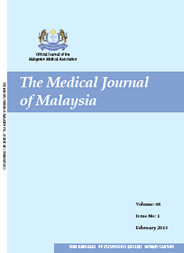MJM, Vol 70 Supplement 1 September 2015
Health Security and Health Diplomacy: New Paradigms
for Global Public Health
Lee Kuan Yew School of Public Policy, National University of Singapore
ABSTRACT
The world is undergoing very rapid transitions in socio-economic development along with emerging global health challenges. While public health systems are gradually being reformed, yet there is a lag as reflected in the traditional public health programs of most universities in responding to the changing global health policies throughout Asia. Older public health programmes that are founded and once dominated by medical institutions are increasingly being eclipsed by global health programmes with broader inter-disciplinary social, economic and political perspectives, with enlarged clientele coming from other sectors, including the fields of security studies and international relations.
With privatisation and growth of the private health industry, there has been increasing demand for healthcare management training conducted by business schools or schools of management. This is discerned from the shift of many “old public health” administration courses to include newer subjects like healthcare management, health economics and financing, and health services research in the development of public health professional training. Thus the new public administration movement in government has also spilled over to influence the “new public health”, such as the trends towards corporatisation and public-private participation in health services. But newer trends of global thinking plus higher policy perspectives are slowly evolving to promote more integrated approaches in public health policy, paying greater emphasis on matters of global health governance, better balance of the public-private-people mix in universal health coverage, and growing health security and diplomacy issues that affect peace and prosperity on a global level.
Regional developments in greater ASEAN integration with the increasing trade and movement of goods and services, will present newer cross-border health challenges such as emerging infectious diseases (SARS, Nipah virus, Avian flu, etc), migrant and workers’ health, environmental pollution (‘haze”) and climate change effects. These will impose more competition or lead to cooperation with greater comparisons of health policies and systems for lessons and best practices. Public health and public policy curricula must continually respond to changing needs and the challenges across rising Asia, if we are to remain useful and relevant in the public interest. Are there synergies in developing more joint and inter-disciplinary programs between public health schools, going beyond medical schools to business schools and schools of public policy? What are the ways and means of doing so through innovative reforms in global public health teaching, research and services?
